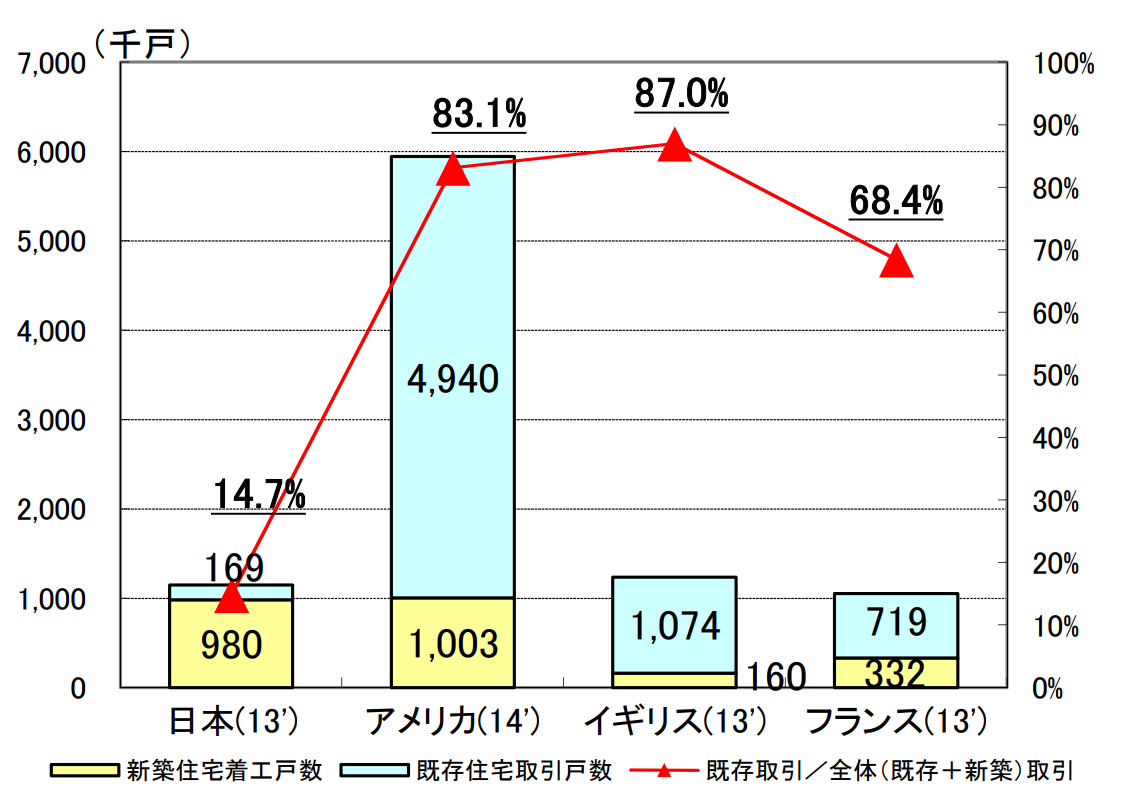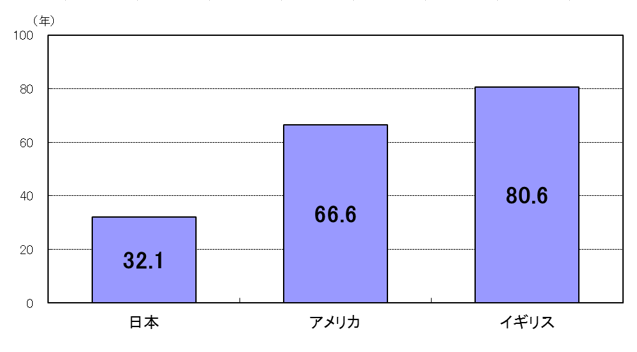Everyone wants a brand-new house
Japanese have "the brand-new house intention"
In Japan people usually want to own a brand-new house.According to a survey conducted in 2018, a little less than 70 percent of people who bought their house said,
“I feel much better in a newly-built house.” And it was a reason for not choosing a used one.※1
Although it depends on individual tastes, in Japan more people want to buy a new house than in Western countries.
The number of the houses built in Japan between 2002 and 2014 is twice as large as the U.S.
The rate of used houses on the market is only 14.7 percent in Japan, while it is 83.1 in America, 87.0 in Britain.※2
Certainly, there is a big gap.

出典:国土交通省「平成30年度 住宅経済関連データ」から引用
The market value of a house depends on how many people want it.
Naturally used houses in Japan are not popular, and they don’t sell well and their market value is low.
Vacant houses remain vacant and the owners give up selling and neglect the proper maintenance.
Scrap and build
In the real estate market,they say a newly built house loses 20 percent of its original value the moment someone moves in and it becomes completely valueless in 30 years.
People who want a new house want a sort of “brand-new” label on the house, not the quality or novelty of it.
No wonder builders focus their energy on constructing new houses. As a result, we scrap and build houses in the cycle of 30 years.
So average lifespan of a house in Japan is 32 years in Japan, 67 in the U.S. and 82 in Britain. Clearly, Japanese houses have much shorter house.

出典:国土交通省「平成30年度 住宅経済関連データ」から引用
Of course, a house can have life much longer than 30 years.
It may wear out in some parts, but it still functions well. We demolish it without repairing or reusing it and build a new one.
Of course, we have to change our way of thinking nurtured in mass consumption society in order to make our society more sustainable and solve the problem of vacant houses.
<Prev. Next >